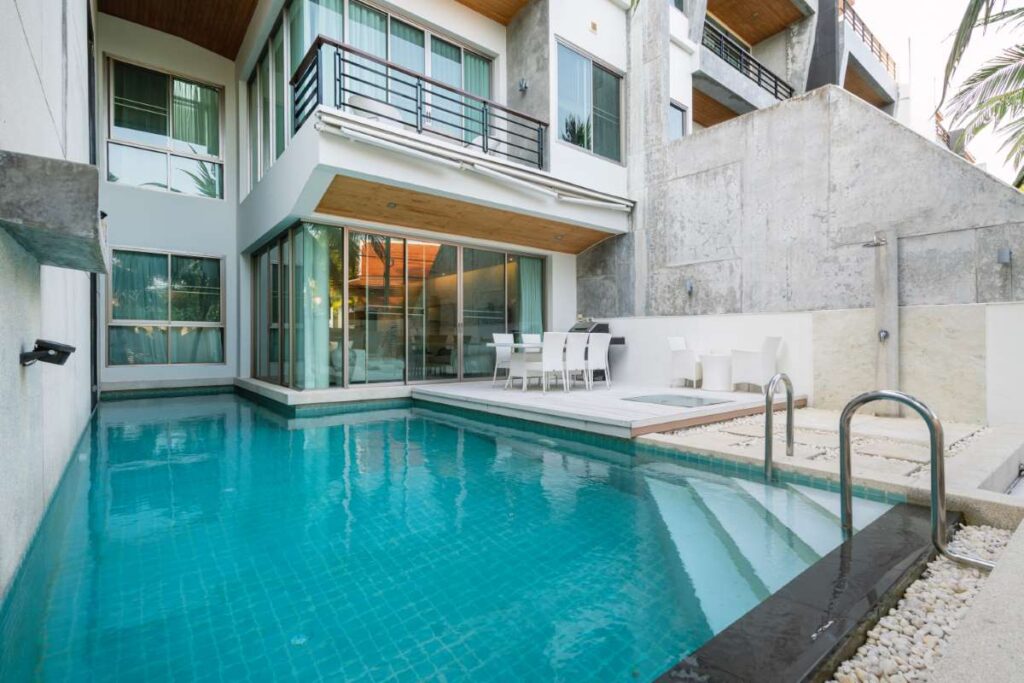Emerging Technologies in Chemical Alternatives for Pool Service Providers
As the pool service industry evolves, so too do the technologies and chemical alternatives available to service providers. In a world increasingly focused on sustainability, pool service providers are seeking innovative solutions that not only maintain optimal pool conditions but also safeguard the environment. This blog post delves into the most promising emerging technologies in chemical alternatives specifically tailored for pool service professionals. From eco-friendly sanitizers to automation in chemical dosing, this comprehensive guide will illuminate how these advancements can transform your pool service operations.
In recent years, the push for environmentally sustainable practices has gained momentum, influencing various industries, including pool maintenance. Pool service providers are now exploring alternatives to traditional chemical treatments that can be harmful to both users and the environment. Understanding these emerging technologies is crucial for professionals looking to enhance their service offerings while contributing to environmental conservation.
This blog post will cover several key areas, including the rise of saltwater systems, the advent of UV-C and ozone sanitization, innovations in automated chemical dosing systems, and the role of digital technology in monitoring pool chemistry. Each section will provide insights into the benefits and practical applications of these technologies, along with tips for implementation and best practices.
The Rise of Saltwater Systems
Saltwater pools are gaining popularity among pool service providers and homeowners alike due to their numerous benefits. Unlike traditional chlorine pools that rely on harsh chemicals, saltwater systems use a salt chlorinator to convert salt into chlorine through electrolysis. This process not only offers a more gentle swimming experience but also reduces the reliance on store-bought chlorine products.
Statistically, pools using saltwater systems can reduce chemical costs by up to 50% annually. This significant saving, combined with the increased comfort for swimmers—no more red eyes or dry skin—makes saltwater systems an attractive option. Moreover, they contribute to a more eco-friendly pool environment, making them a preferred choice for environmentally conscious service providers.
Case studies indicate that many pool service companies are transitioning to saltwater systems and experiencing an increase in customer satisfaction. By promoting these systems, pool service providers not only enhance the swimming experience but also position themselves as leaders in sustainable pool maintenance practices.
UV-C and Ozone Sanitization Technologies
Ultraviolet (UV-C) light and ozone are two advanced sanitization methods that have emerged as effective alternatives to traditional chlorine. UV-C systems work by using ultraviolet light to kill bacteria, viruses, and other pathogens present in pool water. This method is particularly beneficial as it does not add any chemicals to the water, thereby reducing the overall chemical load.
Ozone, on the other hand, is a powerful oxidizer that can effectively kill bacteria and help break down organic contaminants in pool water. When combined with filtration systems, ozone can significantly improve water clarity and reduce the need for additional chemicals. Many pool service providers are integrating these technologies into their offerings to provide clients with cleaner and safer swimming environments.
Research has shown that pools utilizing UV-C and ozone systems can achieve up to a 90% reduction in chemical usage. This statistic is compelling for any pool service provider looking to market their services in a way that aligns with sustainability goals. By highlighting the efficiency and environmental benefits of these technologies, pool service businesses can attract a growing customer base concerned about health and environmental impact.
Automated Chemical Dosing Systems
The complexity of maintaining balanced pool chemistry has led to the development of automated chemical dosing systems. These systems continuously monitor water quality and automatically adjust chemical levels to ensure optimal conditions. This not only simplifies the maintenance process for pool service providers but also enhances the safety and comfort of swimmers.
Many modern pools are equipped with sensors that feed data into a centralized system, which then controls dosing pumps for chlorine, pH, and alkalinity adjustments. This real-time monitoring minimizes the risk of chemical imbalances, which can lead to cloudiness, algae growth, and other issues. As a result, service providers can offer more reliable services with less manual intervention.
Implementing automated dosing systems can lead to significant time savings for pool technicians. Instead of manually testing and adjusting chemical levels during each visit, technicians can focus on other critical maintenance tasks, improving overall operational efficiency. For pool service providers, this technology not only enhances service quality but also positions them as forward-thinking professionals in an increasingly competitive market.
Digital Monitoring Solutions
In addition to automated dosing systems, digital technologies are transforming how pool service providers monitor and maintain pool chemistry. With the integration of IoT (Internet of Things) devices, service providers can track water quality metrics in real-time from their smartphones or computers. These devices can send alerts for any chemical imbalances or equipment malfunctions, allowing for immediate action.
Digital monitoring solutions also enable service providers to maintain comprehensive records of water quality over time. This data can be invaluable for identifying trends, forecasting maintenance needs, and providing clients with detailed reports. By leveraging these technologies, pool service providers can enhance their professionalism and provide clients with transparent communication regarding their pool maintenance.
Moreover, the incorporation of digital platforms can help pool service providers streamline their operations further. Using software like [Pool Biller Software](https://ezpoolbiller.com/) for billing and client management in conjunction with digital monitoring can provide a seamless service experience from maintenance to invoicing. Such integrations allow pool service businesses to optimize their workflow and enhance client satisfaction.
Eco-Friendly Chemical Alternatives
As pool service professionals seek to reduce their environmental impact, several eco-friendly chemical alternatives are gaining traction. Natural pool cleaners, such as enzymes and plant-based products, provide effective cleaning without the harsh chemicals commonly found in traditional pool treatments. These alternatives are particularly appealing to families with small children or pets, as they minimize the risk of chemical exposure.
Another emerging trend is the use of mineral-based sanitizers, which utilize natural elements like copper and silver to purify pool water. These minerals can reduce the reliance on chlorine and offer additional benefits, such as algae prevention and water clarity. Pool service providers adopting these methods can position themselves as eco-conscious operators, appealing to a broader audience.
Implementing eco-friendly alternatives not only demonstrates a commitment to sustainability but can also become a unique selling point for pool service providers. Marketing these services effectively can attract clients looking for greener options and help businesses establish themselves in a niche market driven by environmental awareness.
Best Practices for Implementing Emerging Technologies
Transitioning to emerging technologies in pool service requires careful planning and execution. Here are some best practices for pool service providers looking to adopt these innovations:
1. **Educate Yourself and Your Team**: Before implementing new technologies, ensure that you and your team are well-versed in their operation and benefits. Attend workshops, webinars, or training sessions to gain a thorough understanding of the systems you plan to use.
2. **Start Small**: Consider introducing one technology at a time to ensure a smooth transition. This approach allows you to gauge its effectiveness and make adjustments before full-scale implementation.
3. **Communicate with Clients**: Keep your clients informed about the new technologies you are adopting. Sharing the benefits of these innovations can reinforce their trust in your services and enhance customer satisfaction.
4. **Regularly Review Performance**: Monitor the performance of the new systems and make necessary adjustments. Regularly reviewing data and feedback can help you optimize their use and ensure that you are meeting client needs effectively.
By following these best practices, pool service providers can seamlessly integrate new technologies into their operations, enhancing their service offerings and promoting a sustainable approach to pool maintenance.
Future Trends in Pool Service Technologies
As the pool service industry continues to evolve, several trends are likely to shape the future of pool maintenance. The integration of artificial intelligence (AI) and machine learning will likely play a significant role in predictive maintenance, allowing service providers to anticipate issues before they arise.
Additionally, the use of drones for visual inspections is on the horizon. Drones can provide comprehensive scans of pool surfaces, detecting problems such as cracks or algae growth that may be difficult to spot from the ground. This innovation could revolutionize how pool service providers conduct inspections and maintenance.
Moreover, as customer expectations evolve, service providers will need to adapt to offer more personalized services. Utilizing customer data and feedback to tailor offerings can enhance client satisfaction and foster loyalty. By staying ahead of these trends, pool service providers can ensure they remain competitive in a dynamic market.
Conclusion
The emergence of new technologies and chemical alternatives in the pool service industry represents a significant opportunity for service providers. By adopting innovations such as saltwater systems, UV-C sanitization, automated dosing, and eco-friendly chemicals, professionals can enhance service quality while reducing their environmental impact.
As the industry continues to evolve, embracing these changes will be essential for pool service providers looking to remain competitive and relevant. By integrating advanced technologies and maintaining a commitment to sustainability, pool service professionals can not only improve their operations but also contribute positively to the environment.
Now is the time to explore the potential of these emerging technologies. Consider implementing them into your business model, and don’t hesitate to reach out to platforms like [Pool Biller Software](https://ezpoolbiller.com/) to streamline your operational processes. Together, let’s redefine the future of pool service for a cleaner, greener world.




